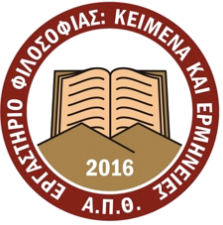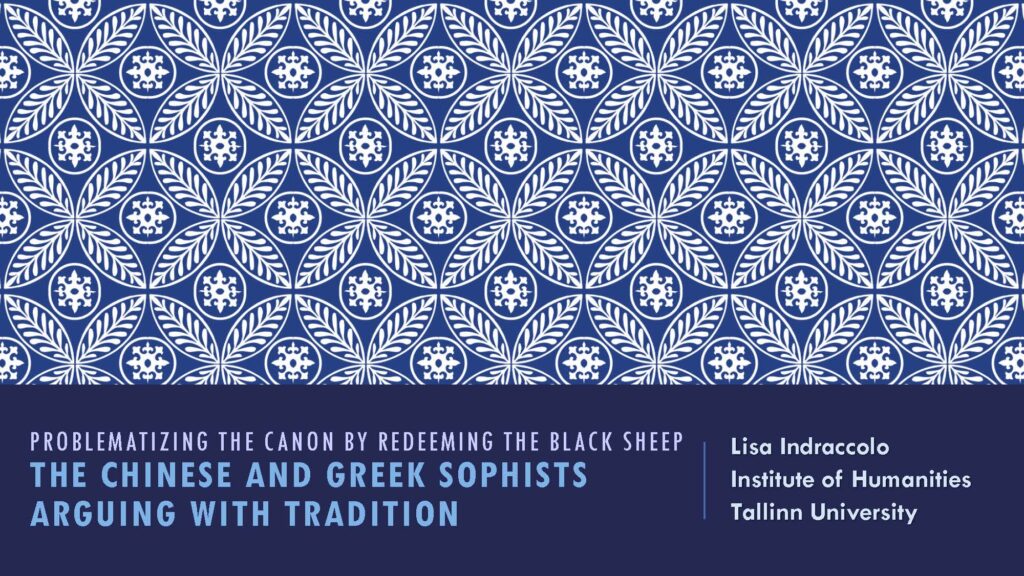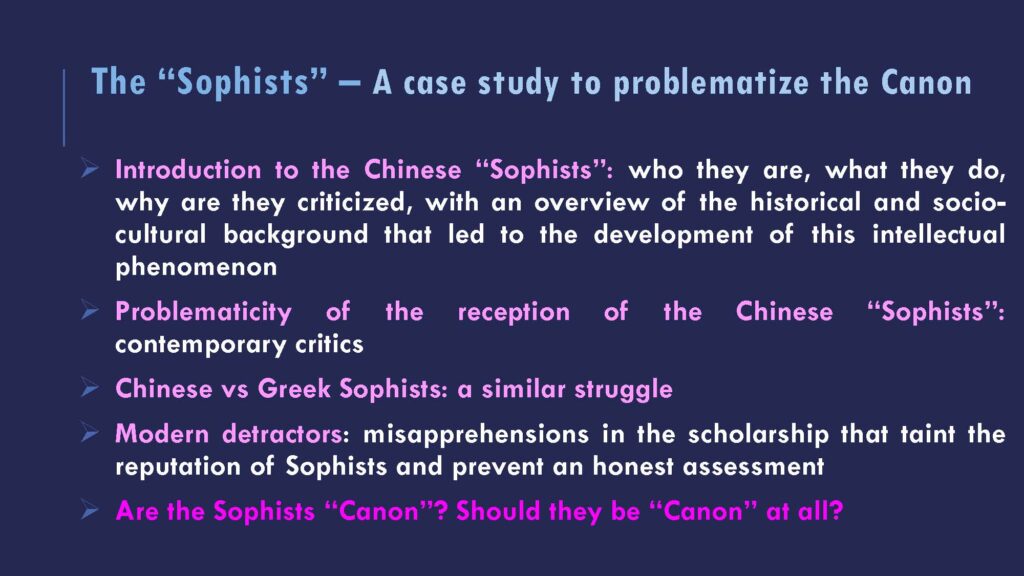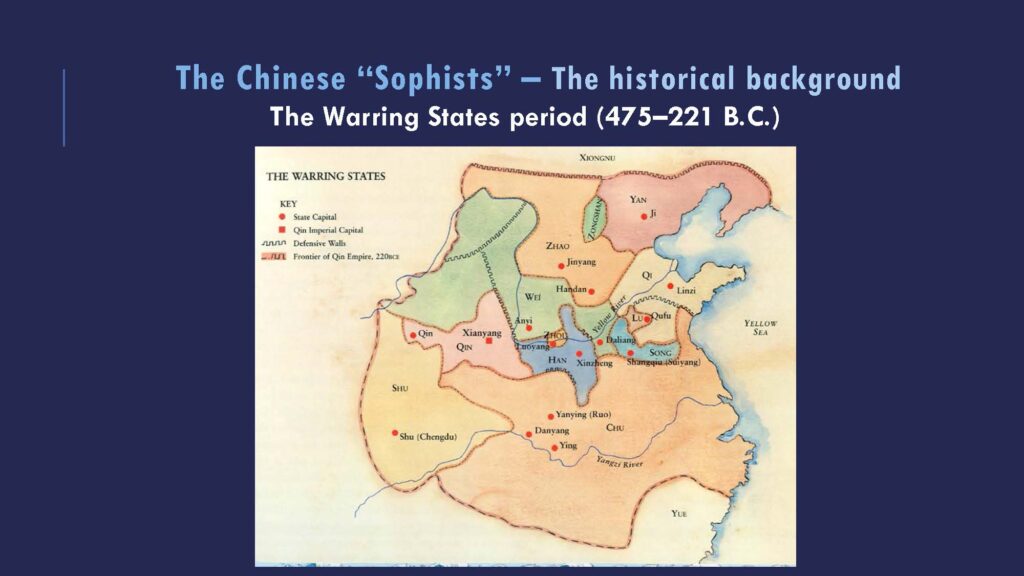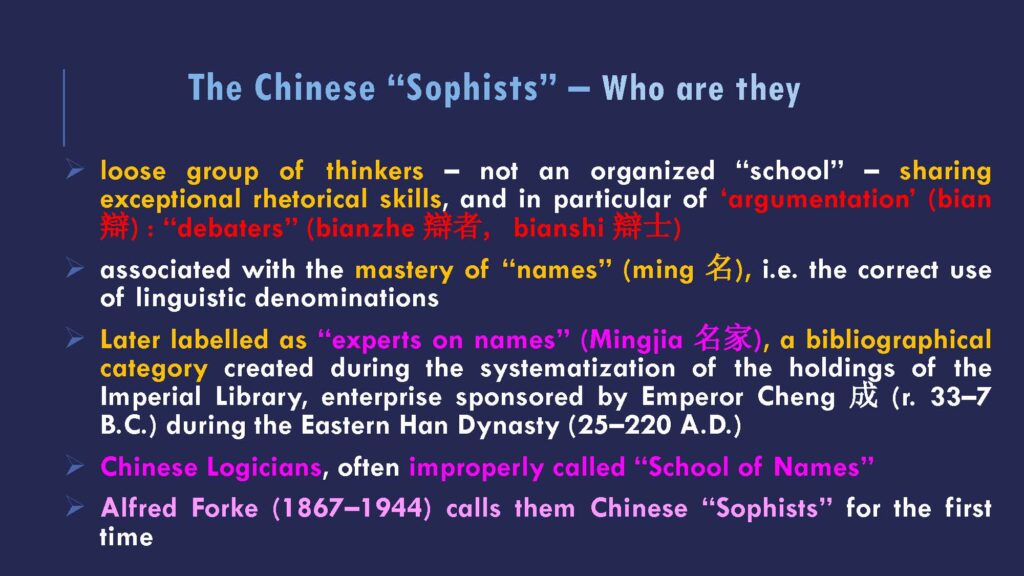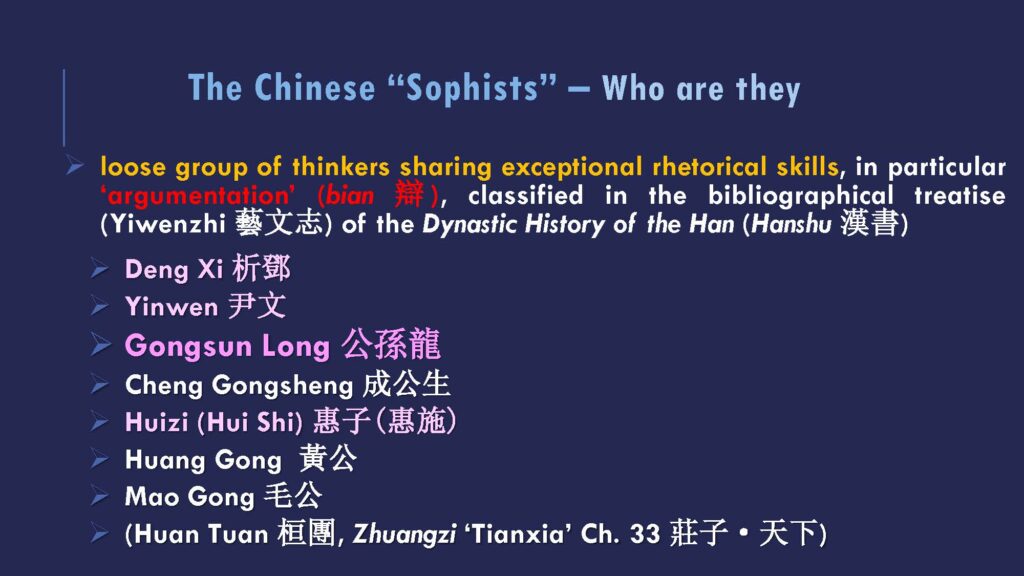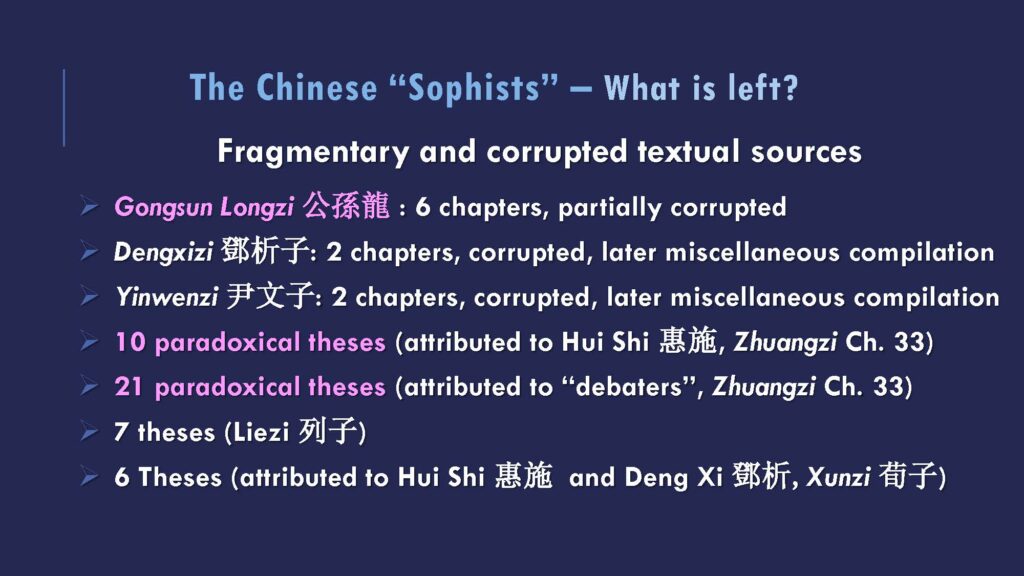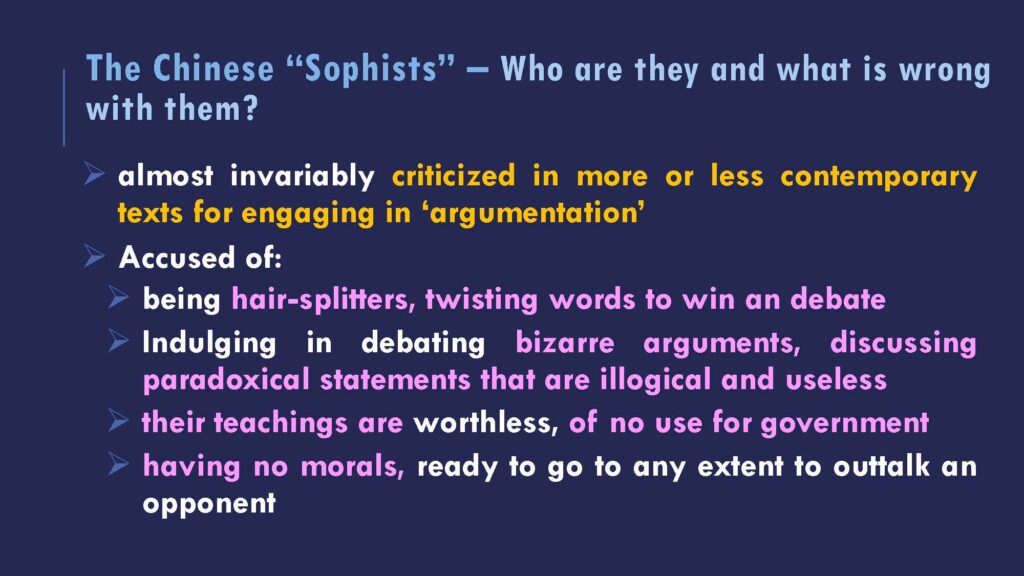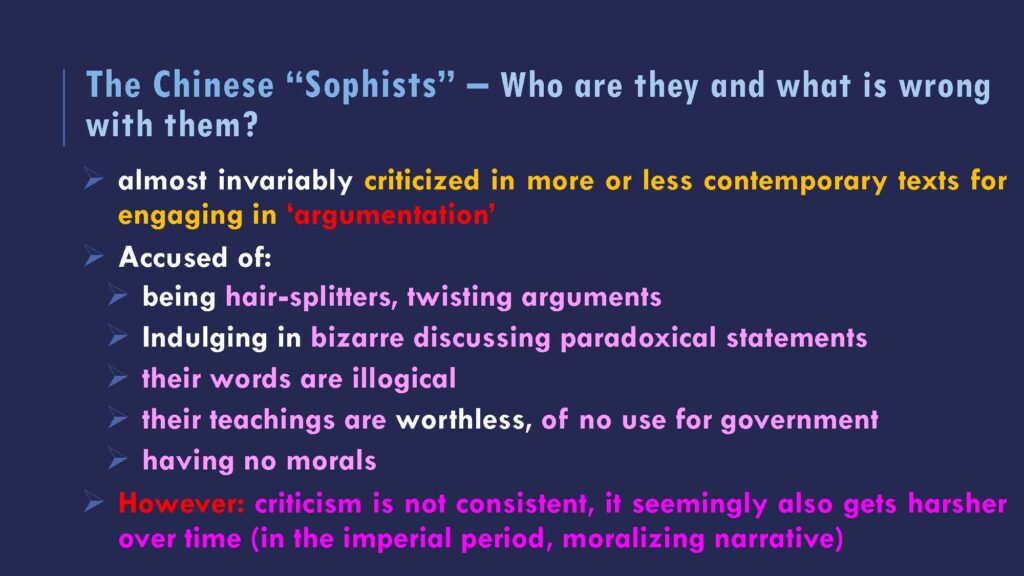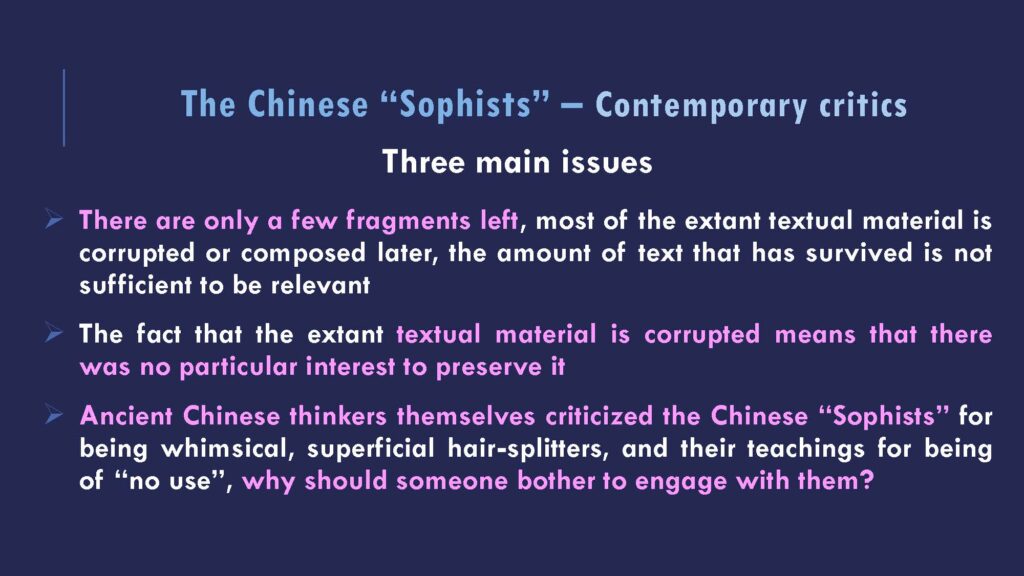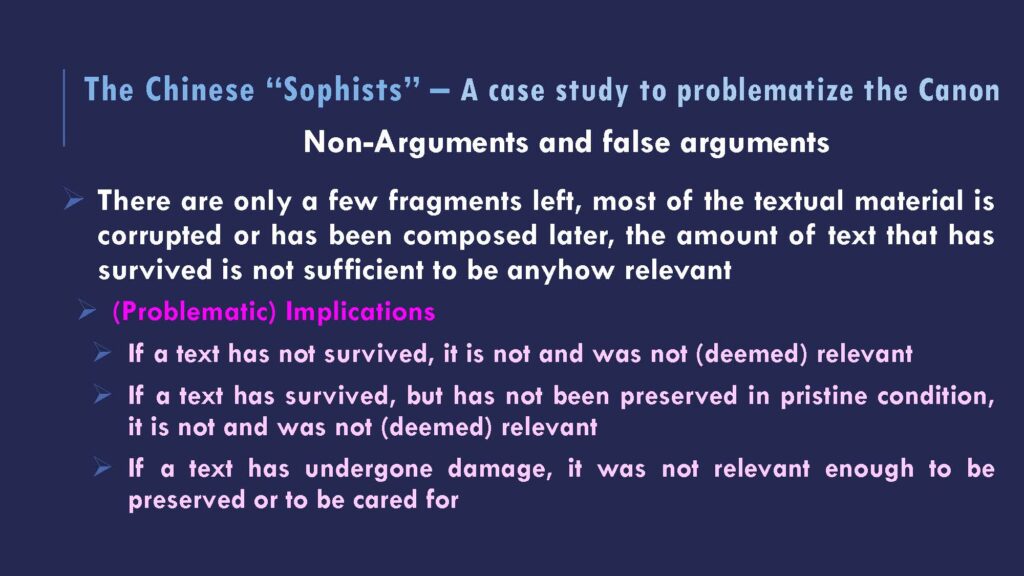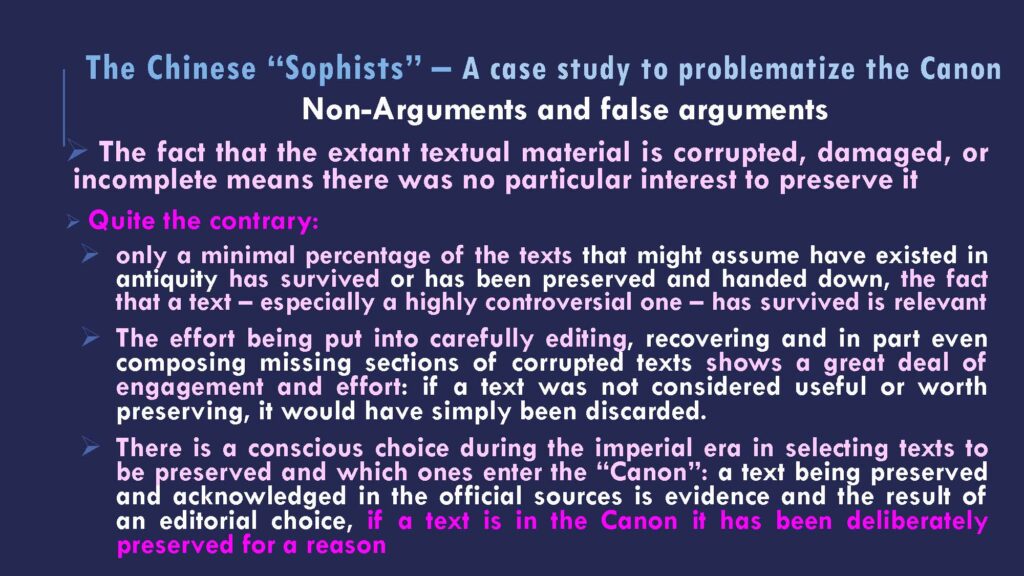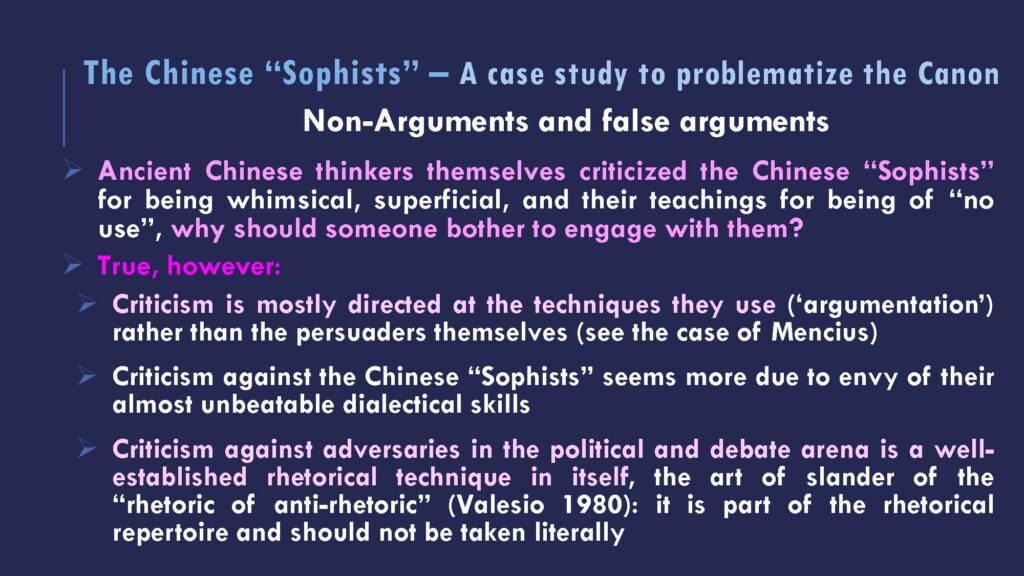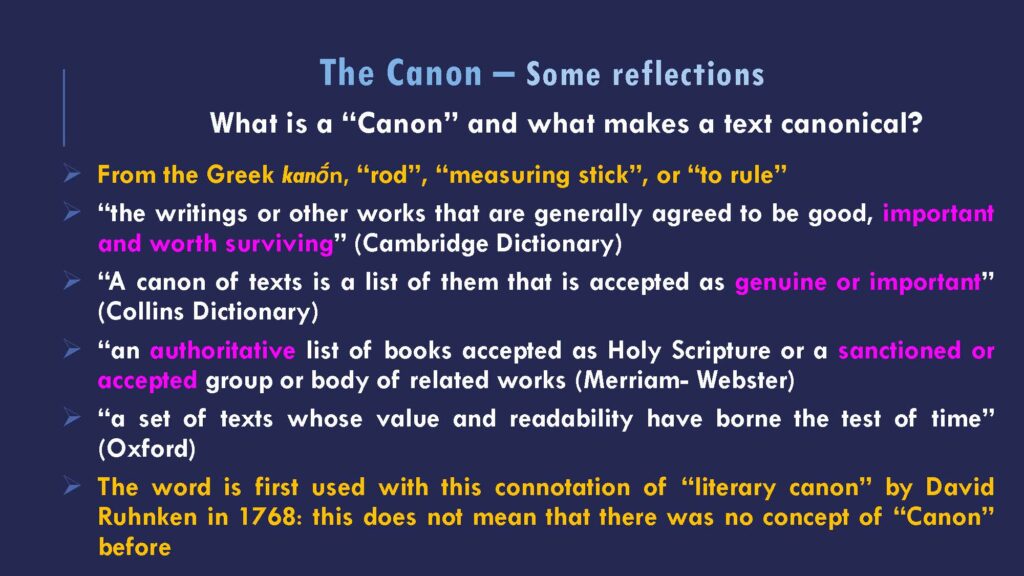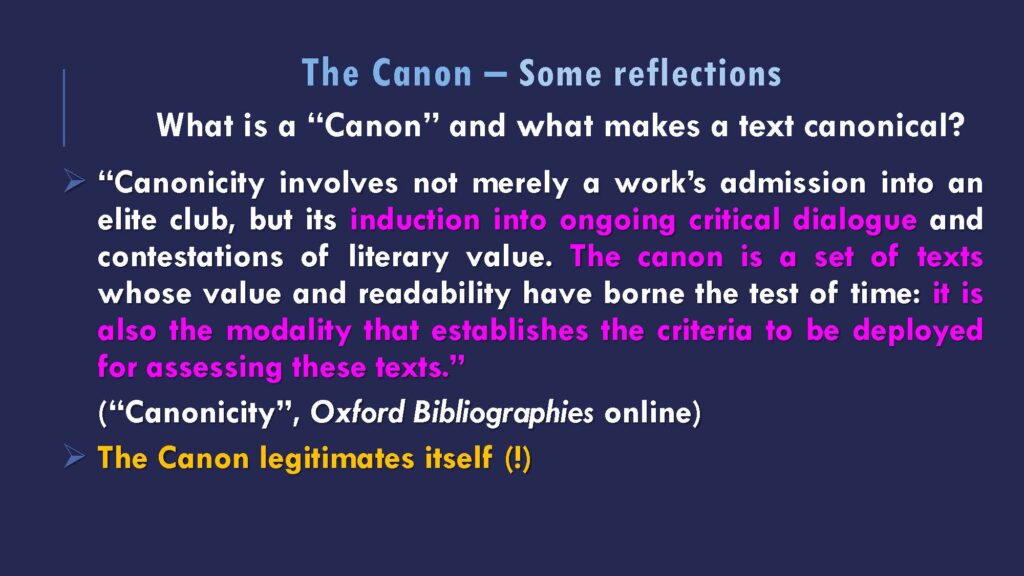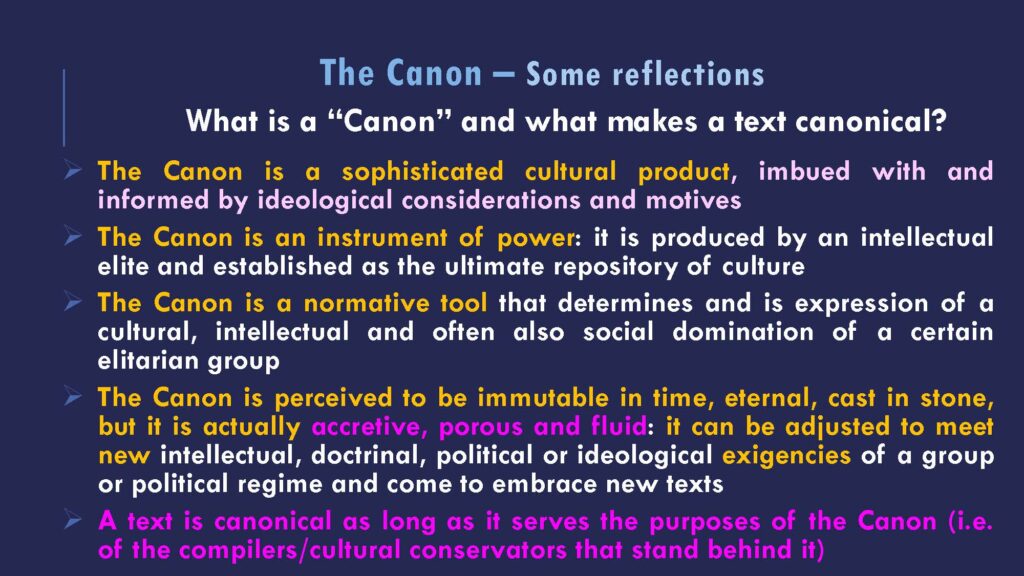Problematizing the Canon by Redeeming the Black Sheep: The Chinese and Greek Sophists arguing with tradition
Lisa Indracollo (Tallinn University)
Abstract
The Warring States period (ca. 475–221 B.C.) is considered the “Golden Age” of Classical Chinese philosophy, as it witnessed an unprecedented flourishing of different philosophical trends. Among these, one loose group of thinkers made a name for themselves and stood out for their sharp rhetorical skills, and their exceptional political sagacity and shrewdness, the so-called Logicians or “experts on names,” also more commonly (although somewhat improperly) known as “School of Names” (Míngjiā 名家). The skills they mastered were most welcomed and put to good use by the local rulers of the time. However, their almost unrivalled ability in outtalking an opponent in debate, combined with their renown (and somewhat questionable) indulgence in the resort to paradoxical statements and language jokes, earned them a bad reputation of hair-splitters. In 1901, Alfred Forke (1867–1944) took the liberty to baptize them “Chinese Sophists,” a label that has stuck for over a century now, and that might sound quite appropriate to anyone who is familiar with the characteristics and abilities displayed by the notorious ancient Greek σοφισταί (sophistaí). Besides their shared skills and dispositions, what assimilates the intellectual traditions of these two groups of early thinkers is their (poor) reception. Attacked almost systematically in more or less contemporary texts, the stigma has followed the Chinese “Sophists” throughout the ages, to the point that they are still looked down upon, frowned at, systematically neglected, or simply dismissed as “minor thinkers” by contemporary scholars. However, as the present paper aims to show, nothing could be further from the truth. Are the Sophists “Canon”? Or even better, should they be “Canon” at all? By taking the early Chinese Logicians and the ancient Greek Sophists as a case study, the present paper problematizes the concept of Canon, and the reception of the Canon itself.
Lisa Indraccolo is Associate Professor of Chinese Studies at Tallinn University, Estonia (2020–). She earned her Ph.D. (2010) from Ca’ Foscari University of Venice with a thesis on the early Chinese “sophistic” persuader Gongsun Long. She gained several years of research experience at the University of Zurich, where she was appointed as postdoc research fellow (2011–2020) and also actively participated in the activities of the interdisciplinary research cluster University Research Priority Program “Asia and Europe” (2011–2017). Her main research interests include early Chinese thought, with focus on so-called “Masters texts” (zishu) and Warring States philosophical literature; Classical Chinese rhetoric, paradoxes, and language jokes; structural and rhetorical patterns of early Chinese texts; conceptual and intellectual history of premodern China, also from a comparative perspective; contemporary adaptations of ancient Chinese elements in pop culture products; and early cross-cultural encounters between China and Japan. Her publications focus on the early Chinese Logicians or “School of Names” (Mingjia); Legalist political and logical thought (Fajia); the use of paradoxes and language jokes in early Chinese philosophical texts; Classical Chinese rhetoric, and in particular the techniques of argumentation (bian) and persuasion (shui) in pre-imperial and early imperial Chinese literature; premodern Chinese conceptual history; and text-structuring devices of early Chinese texts. She is currently Vice President of the European Association for Chinese Studies (EACS) and affiliated member of the Zurich Center for the Study of the Ancient World (ZAZH).
